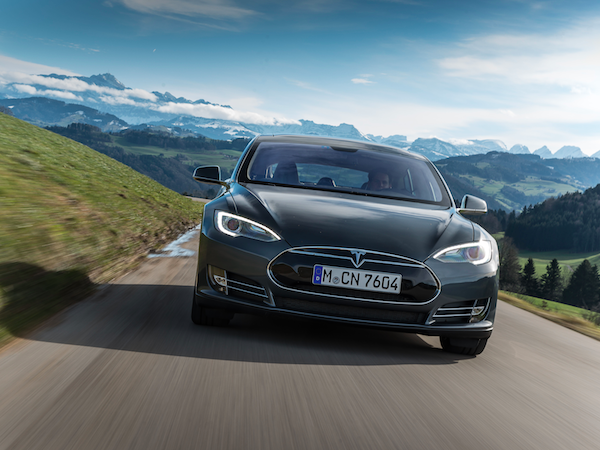Tesla, Panasonic Agree to Build Gigafactory
On Thursday, Tesla and Panasonic reached an agreement to build a "Gigafactory", a large-scale battery manufacturing plant in the United States.
According to Tesla, it will provide and maintain the land, buildings and utilities while Panasonic will manufacture and supply cylindrical lithium-ion cells. Panasonic will also invest in the equipment associated with the cells as well as machinery and other manufacturing tools. Supplier partners will provide the required precursor materials.
"Tesla will take the cells and other components to assemble battery modules and packs," the press release stated. "To meet the projected demand for cells, Tesla will continue to purchase battery cells produced in Panasonic's factories in Japan. Tesla and Panasonic will continue to discuss the details of implementation including sales, operations and investment."
Thanks to the Gigafactory deal, Tesla believes this facility will employ around 6,500 people by 2020. The company also reports that the facility will eventually produce 35 GWh of cells and 50 GWh of packs per year by 2020. The resulting cells, packs and modules produced by the facility will be used in the stationary storage market as well as electric vehicles from Tesla.
Overall, Tesla is looking to advance mass market electric vehicles. That means it needs a manufacturing plant to produce long range battery packs at a cost that continues to decline, and to meet the volumes required to advance the electric vehicle market. That's where Gigafactory comes into play.
"The Gigafactory will be managed by Tesla with Panasonic joining as the principle partner responsible for lithium-ion battery cells and occupying approximately half of the planned manufacturing space," the press release stated. "Key suppliers combined with Tesla's module and pack assembly will comprise the other half of this fully integrated industrial complex."
Tesla reports that it will continue to discuss with Panasonic the details of implementation including sales, operations and investment.
Get Tom's Hardware's best news and in-depth reviews, straight to your inbox.
Follow Kevin Parrish @exfileme. Follow us @tomshardware, on Facebook and on Google+.

Kevin Parrish has over a decade of experience as a writer, editor, and product tester. His work focused on computer hardware, networking equipment, smartphones, tablets, gaming consoles, and other internet-connected devices. His work has appeared in Tom's Hardware, Tom's Guide, Maximum PC, Digital Trends, Android Authority, How-To Geek, Lifewire, and others.
-
borisof007 I can't read "Gigafactory" without thinking about Trials Evolution because of that goddamn Gigatrack.Reply -
akom Great news, considering this is one of the steps Tesla needed to take to get the pricing down for their next planned car (formerly "Model E"), which they aim to get 200 miles per charge and cost around $40,000.Reply -
Bondfc11 MOAR POWA NEEDED! Still in desperate need of power stations. Tesla's US-wide rollout is going painfully slow.Reply -
Bondfc11 Funny I got down-voted for saying they need more power stations. They do clearly. You cannot drive these things E-W, N-S without more stations. Plain and simple. Look at their maps and long haul driving is not possible. Love the car - hate the poor power distribution right now. In a year or two it will be nation-wide (they say), but for now and for my needs the Tesla is a fail (as is all electric vehicles - not speaking of hybrids - pure electric).Reply -
antilycus Why pick an Asian run company when Johnson Controls has the capabilities and can keep jobs in the U.S. and pay taxes as a U.S. Company.Reply -
mrmez If Tesla is the future of electric cars, bring it on.Reply
Pity the big manufacturers can't (won't) produce anything worth looking at. -
sykozis Tesla is a joke. They produce electric vehicles to save the planet.....yet, the batteries eventually have to be disposed of and that in itself is a larger environmental hazard....Reply
